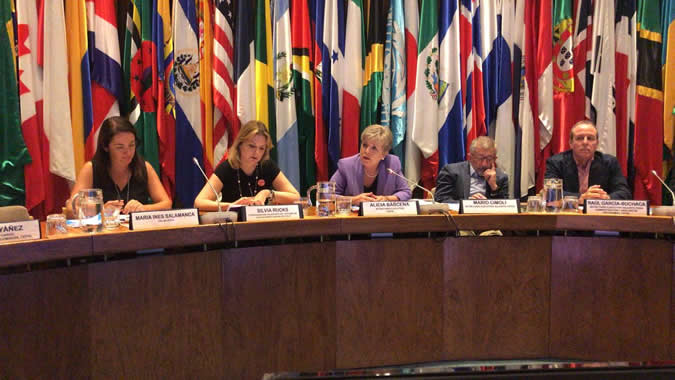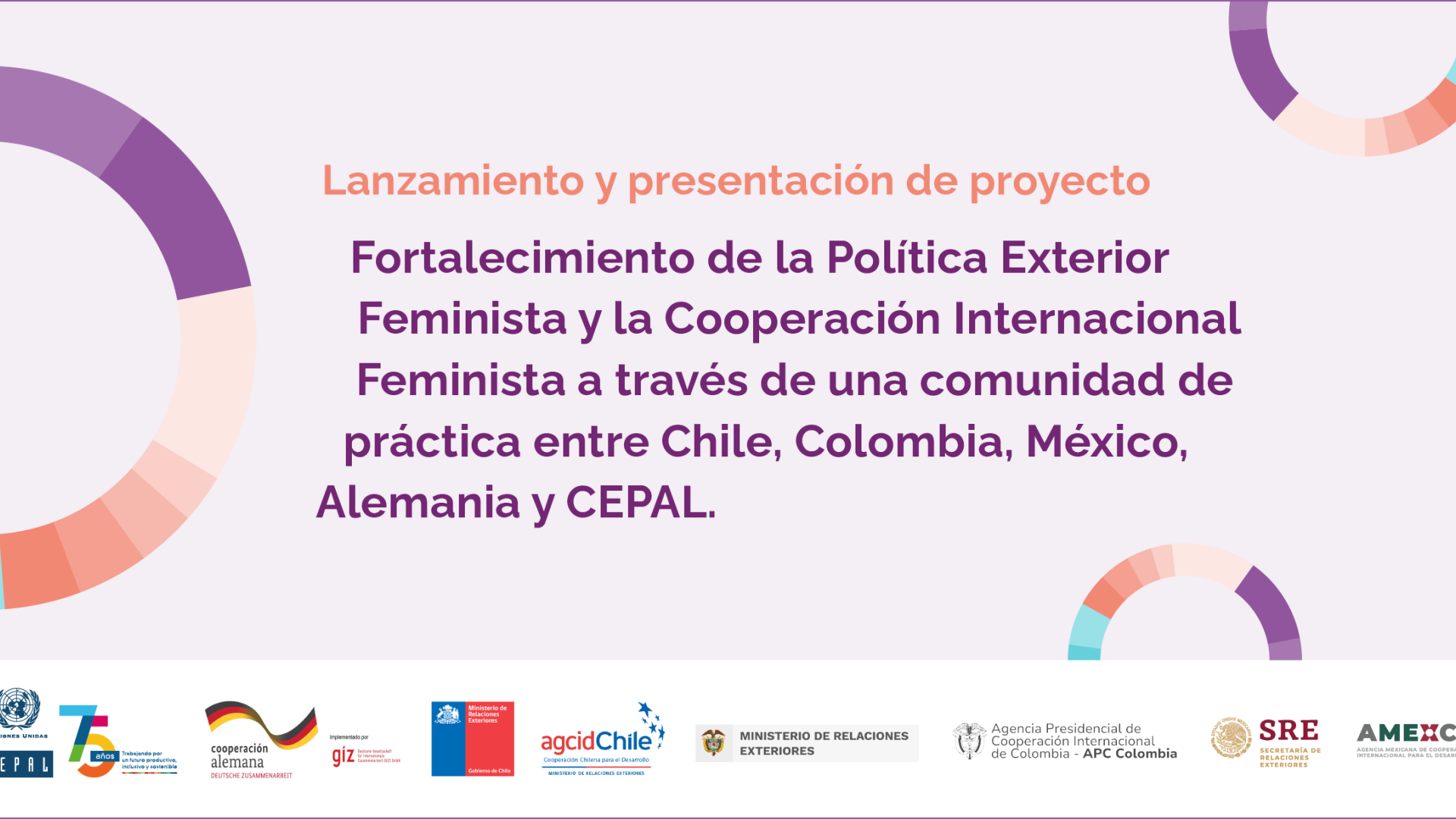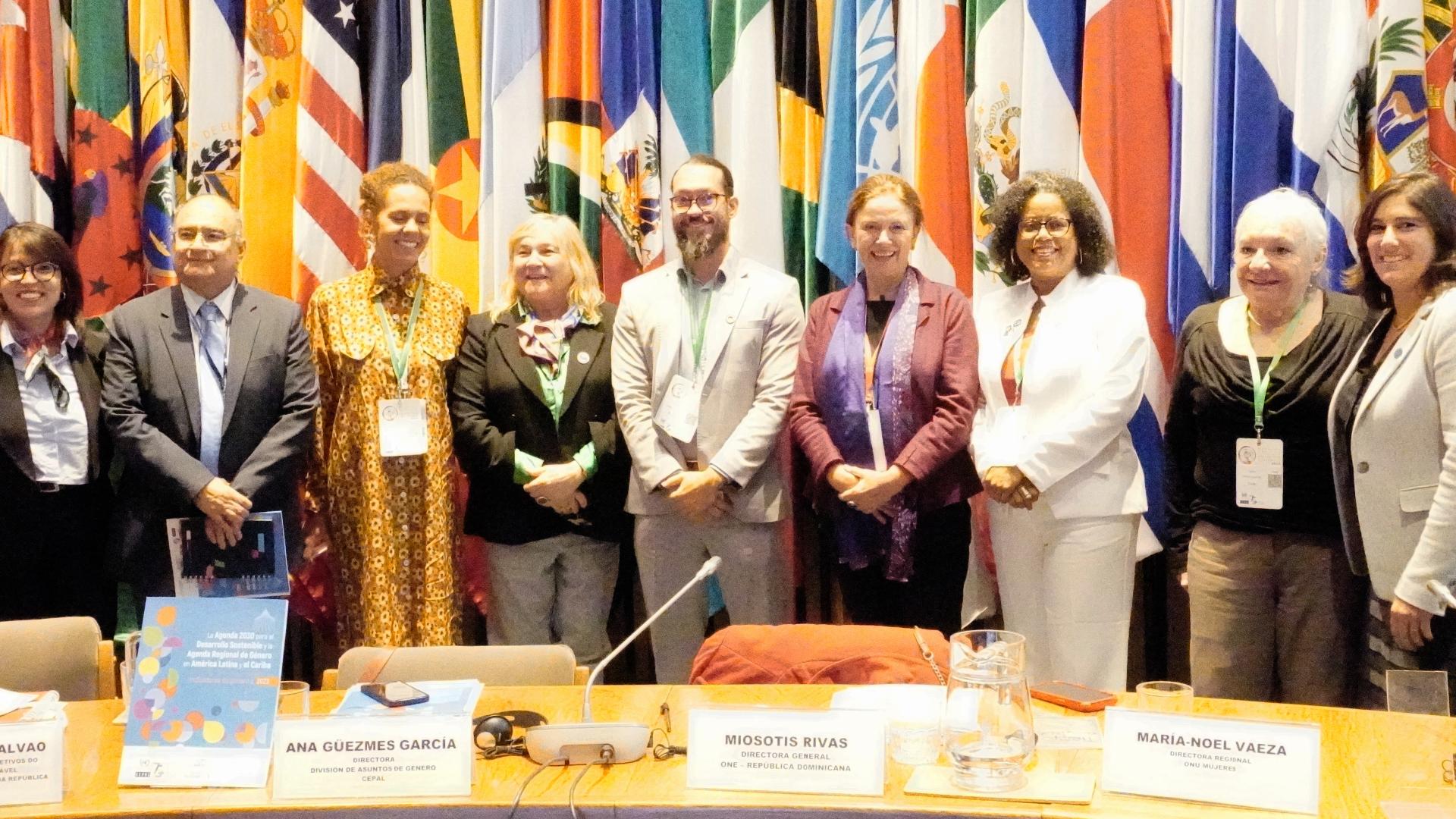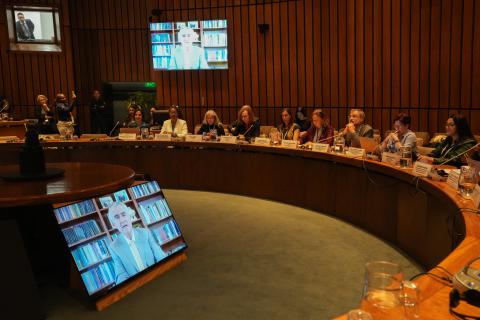Briefing note
The Executive Secretary of the Economic Commission for Latin America and the Caribbean (ECLAC), Alicia Bárcena, warned about the persistence of obstacles that limit the reach of equality policies and their impact on improving women’s living conditions in the region, during a discussion commemorating International Women’s Day held at the commission’s headquarters in Santiago, Chile.
Also participating in this activity were Silvia Rucks, the United Nations System’s Resident Coordinator in Chile, and María Inés Salamanca, the Director of UN Women in Chile.
In her remarks, Alicia Bárcena underlined that in recent years countries have adopted legal frameworks to put an end to all forms of gender-based violence against women, to promote women’s political participation via laws establishing quotas and parity, and to gather information about time use.
“However, these advances have been slow and uneven between countries and with regard to the various dimensions of women’s autonomy, and there are still obstacles that limit the reach of equality policies and their impact on improving the living conditions of women and girls in the region,” she indicated.
ECLAC’s most senior representative noted that, according to figures from the Gender Equality Observatory (GEO), as of 2018 at least 3,800 women had been victims of femicide, and one in every three experienced violence in their intimate partner relationships.
Furthermore, women’s labor participation rate in Latin America has stalled at around 50%, which means that half of all women in the region have no link to the labor market, and 82.2% of them are neither affiliated with nor do they contribute to a pension system.
In that context, she lauded the adoption of the Santiago Commitment, approved by governments of the region at the XIV Regional Conference on Women in Latin America and the Caribbean held in January 2020, to renew their resolve to achieve gender equality and guarantee the rights of women, adolescents and girls in all their diversity.
“This is an ambitious agreement, a multilateral success. It is the collective conscience of a region that has the goal of giving dignity and equality to women who have waited too long for this,” she sustained.
Bárcena also highlighted the demonstrations carried out by women in the region on Sunday, March 8, in the framework of International Women’s Day.
“Throughout Latin America, women showed that they have the strength to fight for equality,” she stated.
Alicia Bárcena recalled that ECLAC has a well-known trajectory of elevating gender issues in political spheres and incorporating a gender perspective in the area of the region’s development. She affirmed that the commission and the United Nations “will keep fighting for gender equality to become a reality.”
“Time is running out, and we women have had enough. Today we have a priceless opportunity to be able to promote and strengthen these commitments, redoubling efforts to implement transformative public policies and thereby achieve substantive equality in our region by 2030,” she concluded.
In her remarks, Silvia Rucks emphasized the relevance of the recent Regional Conference on Women and underscored that the United Nations System can accelerate the changes needed to vanquish the injustice that current gender inequality represents in our countries.
María Inés Salamanca, meanwhile, stressed that the Santiago Commitment shows the need to move forward on processes of equality for women.
“Progress has been too slow and we are at risk of sliding backwards,” she warned.
At the gathering, the directors of ECLAC’s Divisions reviewed their internal work with a view to gender equality and the physical, economic and political autonomy of women in the region.



